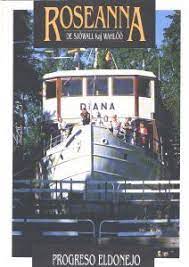GoodReads meta-data is 224 pages, rated 3.81 by 15,123 litizens.
Genre: police procedural.
Verdict: Chapeaux!

The first and best krimi featuring Martin Beck starts with a corpus delicti dredged up from the lock in a Swedish canal during midsummer. It is a woman of about thirty. An autopsy shows that she was murdered by strangulation. The local plod begins the investigation and calls in a skilled interrogator from Stockholm, one Martin Beck, to sort through the testimony. His questions soon reveal how little the police know.
Who is the victim? Knowing that might help establish how she came to be there in the mud shovelled up by the dredger’s scoop. Much of the early going is devoted to the efforts to identify the naked corpse. If she is local, or Swedish or even Nordic, someone will report her missing, though perhaps not until after the summer holidays end, then with an identity, the investigation will gain traction. Time passes, but no, no one in Scandivania reports such a missing person.
Tourist boats ply the lock in the summer season and gradually the focus shifts to those now weeks later. There are dozens of them, and one by one they are assessed and eliminated until settling on the most likely one given the estimated time of death and the last meal. A passenger list is acquired and through Interpol the passenger-tourists from around the world are interviewed by the local plod on behalf of Beck and company. Only later is it discovered that the list was not complete because of last-minute walk-ons.
And so it goes until they come to Roseanna McGraw, a librarian from Lincoln in far Nebraska, whose name is on the list but who cannot be found. Beck contacts police lieutenant Elmer Kafka of the Lincoln PD and in time they conclude that the victim is indeed Roseanna. These two talk on the telephone, exchange letters, telegrams, and information packages and unite in the pursuit. Kafka handles the American side of the investigation off the page.
There follow two marvellous themes. In one Beck develops a picture of Roseanna McGraw’s personality, her likes and dislikes, her attitudes to men, her dining and drinking habits, her wardrobe, her self-confidence, and so on. The other is a painstakingly harvest of all the holiday snap shots from the eighty other passengers on the boat from around the world (Kafka covers the USA) to jigsaw-puzzle together a picture of her last days of life on the boat as a figure in the background of these photographs. During these efforts Beck comes to know the deceased, motivating him even more to stick with it and find the perpetrator. Roseanna is very definitely a person to him, not just a case.
In Stockholm the season changes, other cases come and go, and Beck’s children grow while he muses that he has the three essential qualities for an investigator: (1) persistence, (2) detachment, and (3) systematic thinking. He will not quit. He is not misled by emotional involvement. He will test the facts. So simple yet so rare.
Spoiler follows.

Readers will have to decide for themselves about the denouement. Was it entrapment? Was it provocation? Yes on both counts to this reader. In context it is about ends and means, but still it seems strange given the well known, often paraded, frequently trumpeted political opinions of the writers as lefter than thou. There is certainly no presumption of innocence in the absence of proof in these pages, and anything goes to get the perpetrator.
I also wondered if the villain had the wit, and if so, by what means, to dispose of Roseanna’s baggage, passport, handbag, coat, and so on. These objects are mentioned once earlier and then evaporate from the story and in my reading the question was never resolved.

This book inspired me to re-read another in the series, and I was reminded why I think this one is the best. Though that second title did have a good section in which Beck and his crew make inferences from a subway ticket. It was interesting to see how much information could be derived from it, and what conjectures it lead to, though it this part was not integrated into the plot. See The Man on the Balcony (1967).
Confession I also read the Man Who Went up in Smoke (1966) and found it bland. It seemed more like copy for a Budapest Tourist Board campaign than a krimi. Rather Beck is enthralled by the Red Paradise. The Hungarian Uprising a mere ten years before is tactfully not mentioned. The bullet strikes in walls, fire damaged walls, and secret police torture chambers that we saw on our visit to Budapest a few years ago escaped Beck’s notice.
Tibet proved boring and for a break from the bleak account of life there I returned to Sweden. And not to just any Sweden, but to an old favourite that I have read a couple of times before, the first time in the long ago.

